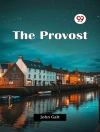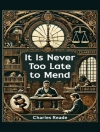ESFP are fun and like to be the center of attention; they are explorers and love to learn and share their learning with others. In this book you will find two classic novels specially selected to please the tastes of the ESFP. These are works by renowned authors that will surely bring reflections, insights and fun to people with this kind of personality.
For ESFP , we chose:
– The Great Gatsby by F. Scott Fitzgerald.
– Sons and Lovers by D. H. Lawrence.For more books that will suit you, be sure to check out our collection 7 Short Stories your Myers-Briggs Type Will Love!
Mengenai Pengarang
– Francis Scott Key Fitzgerald was an American fiction writer, whose works helped to illustrate the flamboyance and excess of the Jazz Age. While he achieved popular success, fame, and fortune in his lifetime, he did not receive much critical acclaim until after his death. Perhaps the most notable member of the ”Lost Generation” of the 1920s, Fitzgerald is now widely regarded as one of the greatest American writers of the 20th century. He finished four novels: This Side of Paradise, The Beautiful and Damned, The Great Gatsby, and Tender Is the Night. A fifth, unfinished novel, The Last Tycoon, was published posthumously. Four collections of his short stories were published, as well as 164 short stories in magazines during his lifetime.
– David Herbert Lawrence was an English writer and poet. His collected works represent, among other things, an extended reflection upon the dehumanising effects of modernity and industrialisation. Some of the issues Lawrence explores are sexuality, emotional health, vitality, spontaneity, and instinct. Lawrence’s opinions earned him many enemies and he endured official persecution, censorship, and misrepresentation of his creative work throughout the second half of his life, much of which he spent in a voluntary exile he called his ”savage pilgrimage”. At the time of his death, his public reputation was that of a pornographer who had wasted his considerable talents. E. M. Forster, in an obituary notice, challenged this widely held view, describing him as ”the greatest imaginative novelist of our generation.” Later, the literary critic F. R. Leavis championed both his artistic integrity and his moral seriousness.












